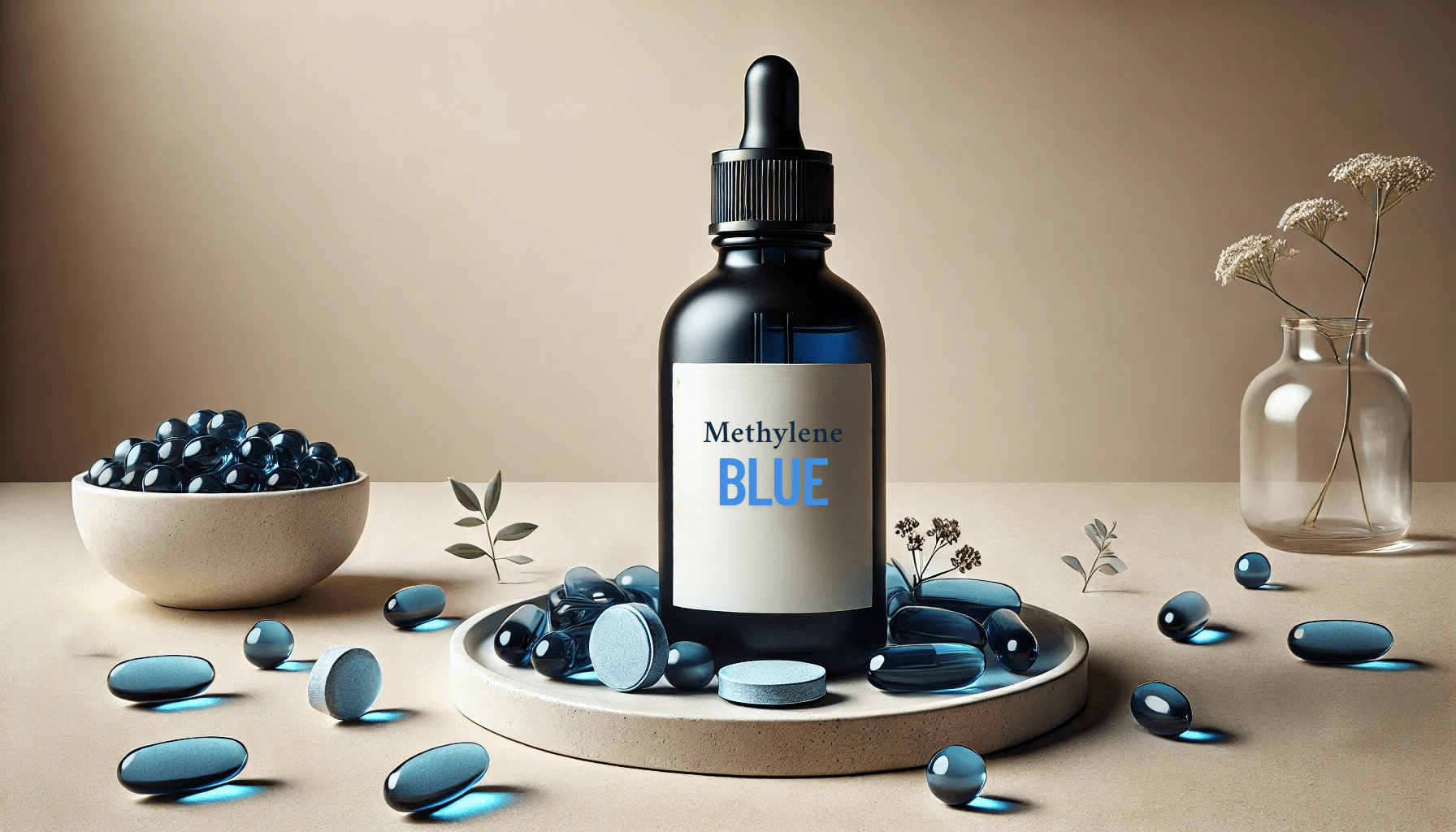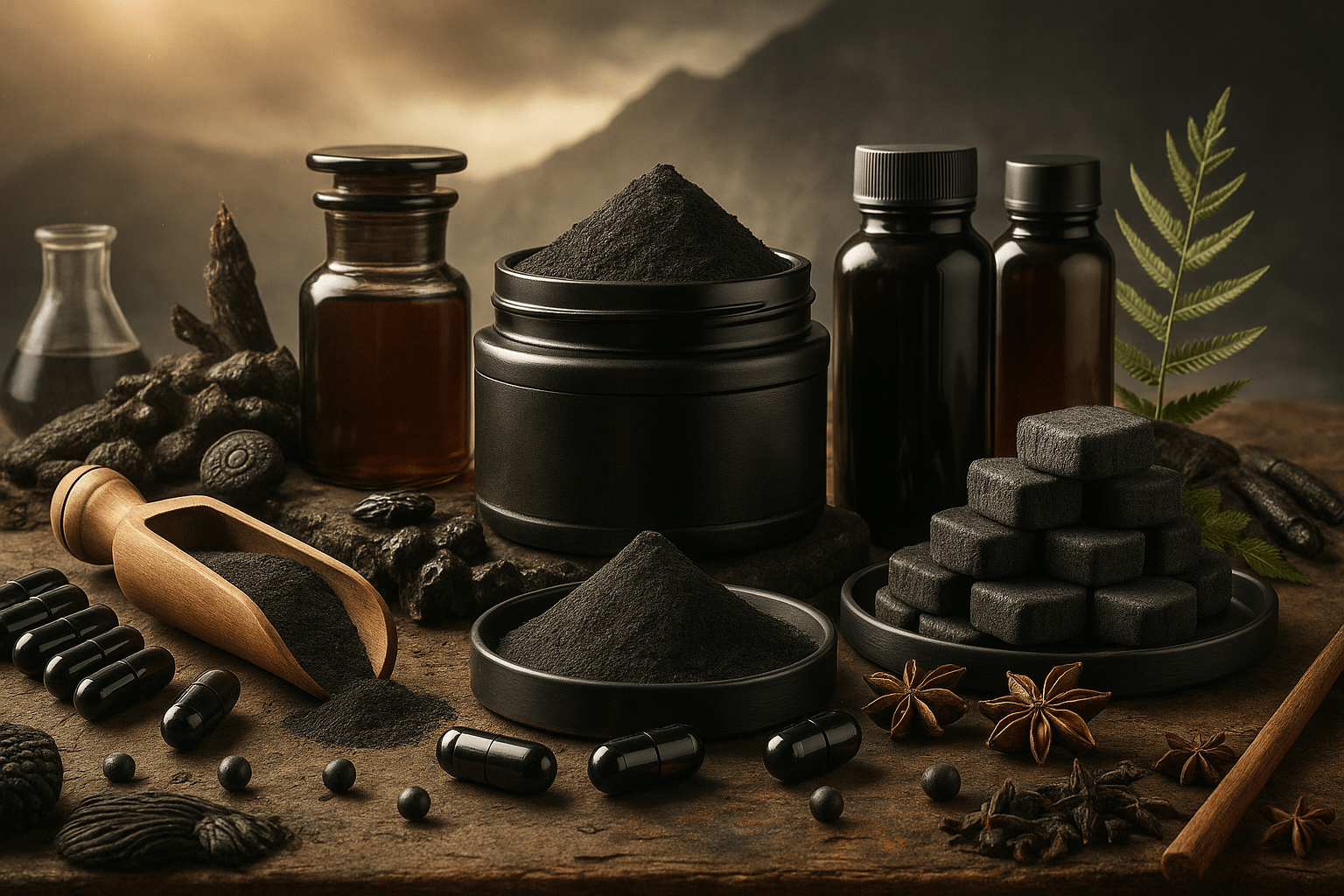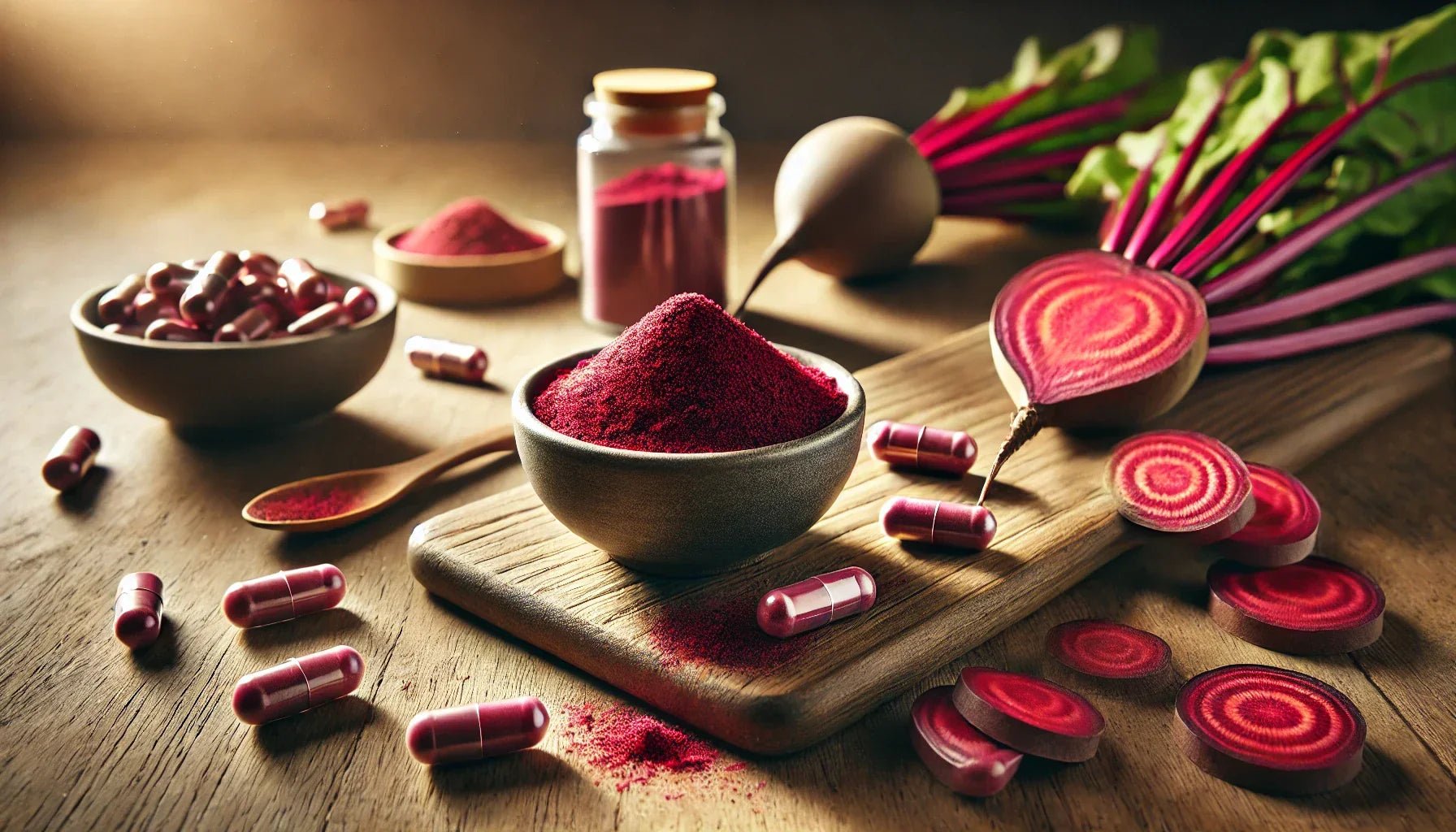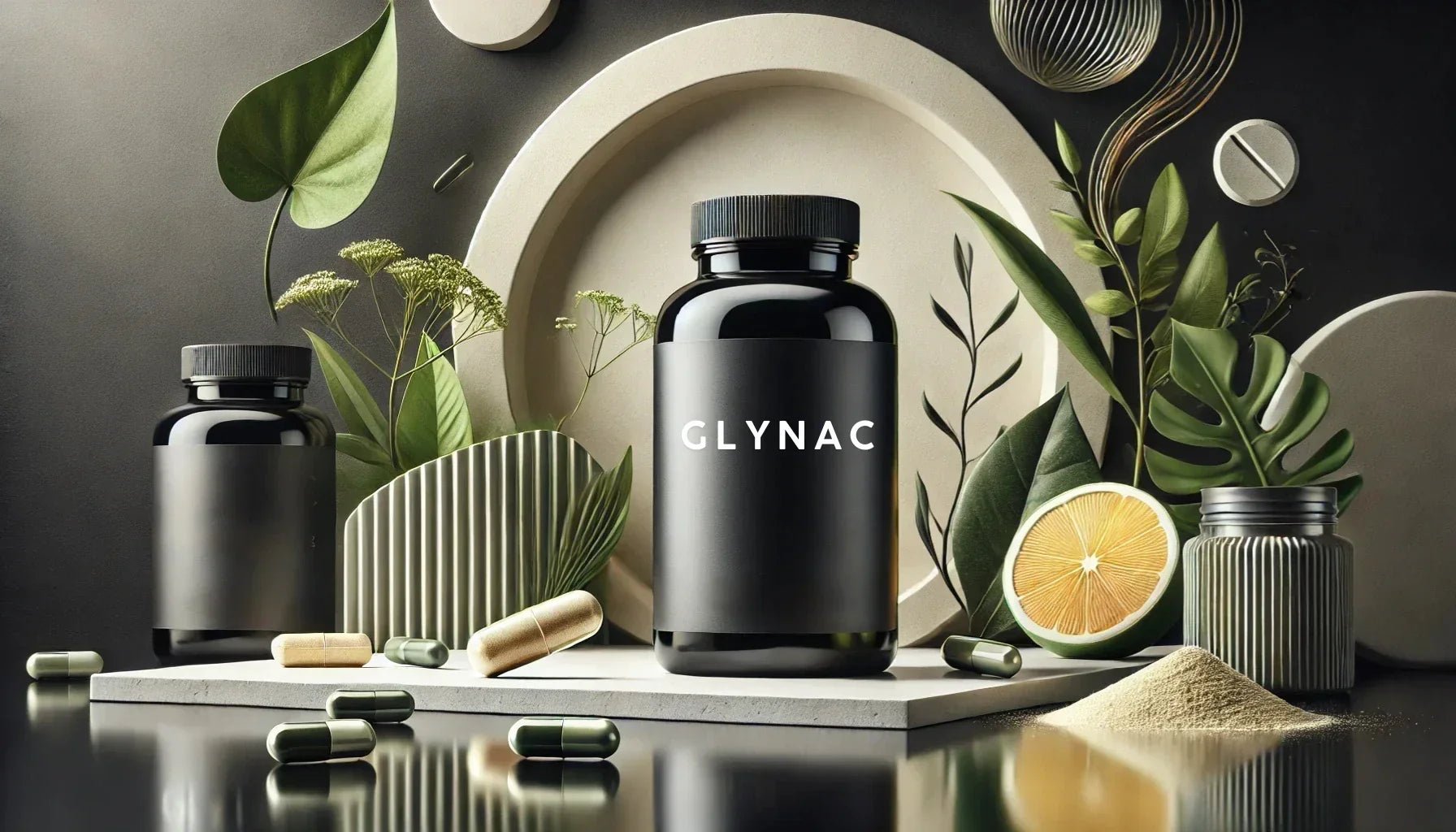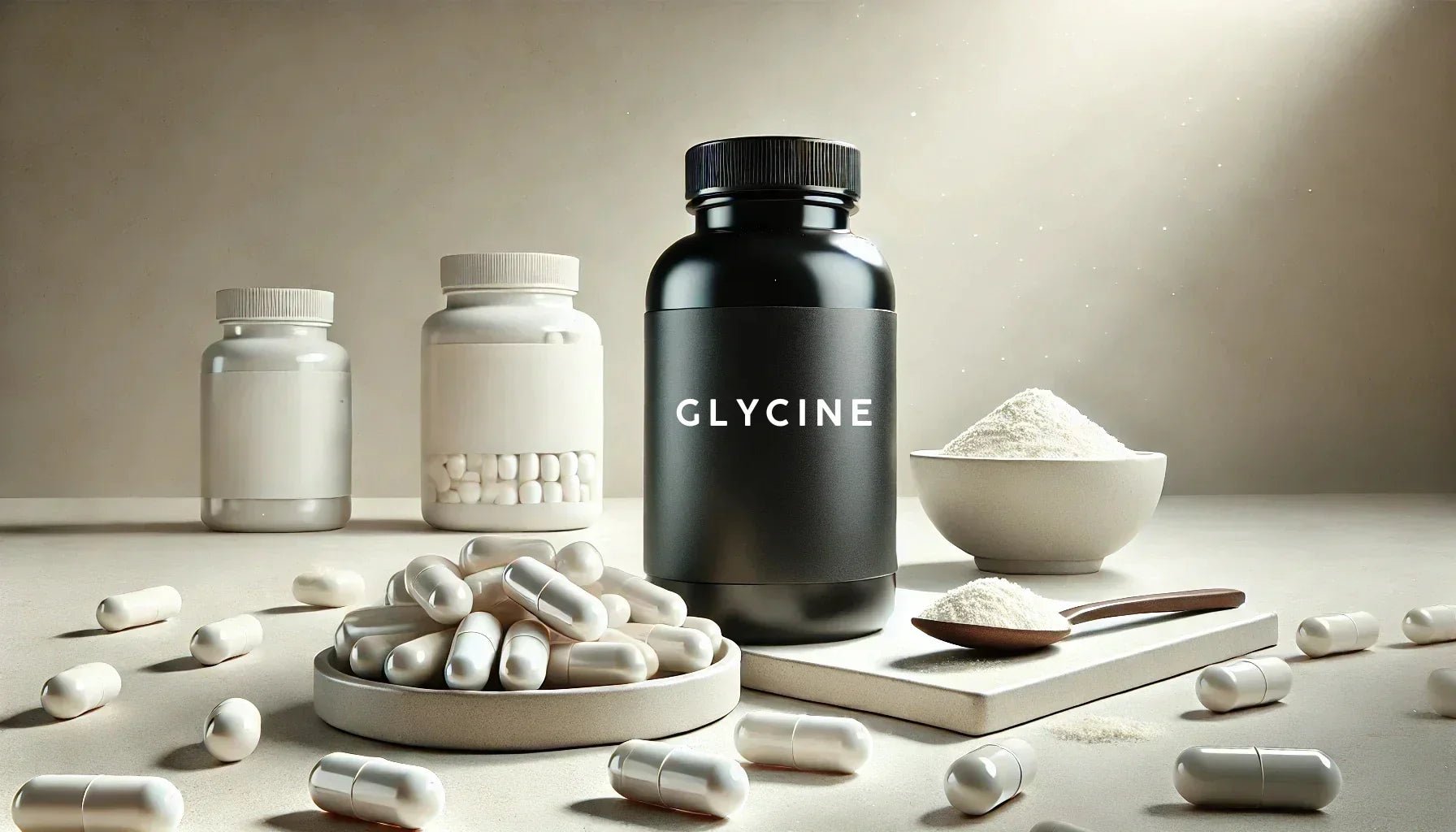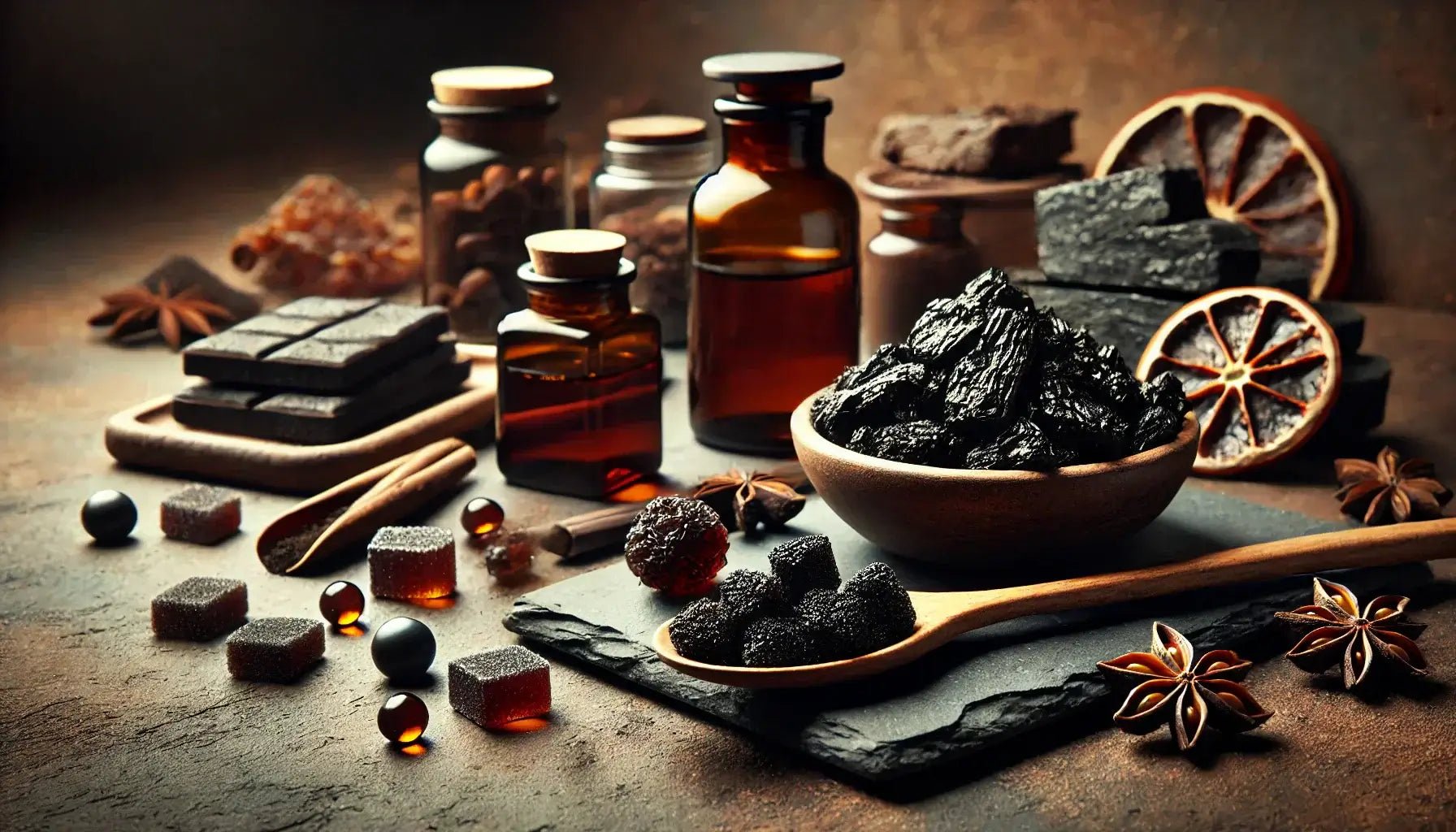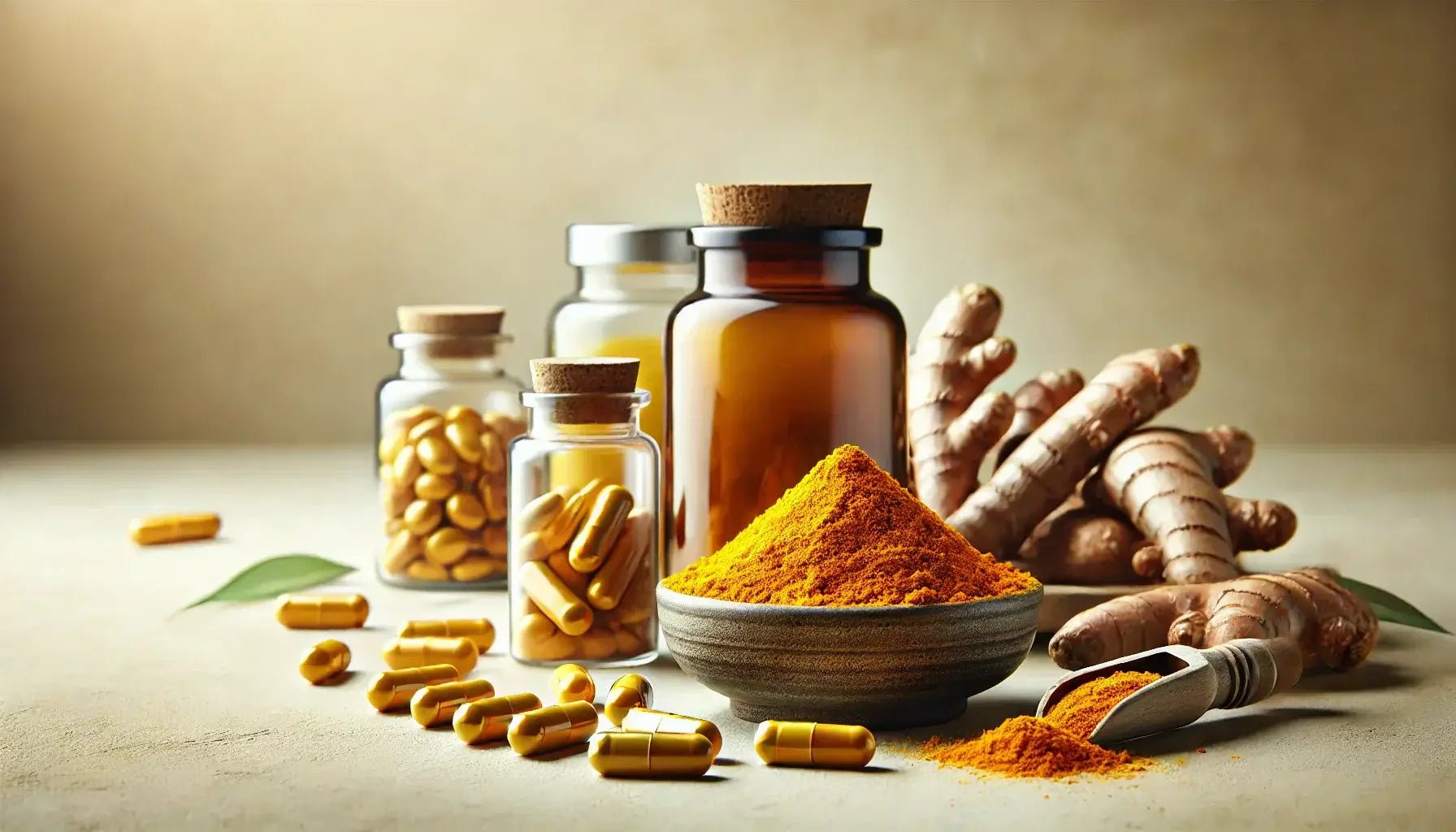Methylene blue has surged from a humble laboratory dye to one of the most buzzed-about supplements in the world of biohacking, cognitive enhancement, and longevity. Over the past few years, search interest in methylene blue has skyrocketed, and it’s now a staple in online wellness forums, social media, and even longevity clinics. But what exactly is methylene blue? Is it safe, and does the science support the claims of sharper focus, more energy, and healthier aging? This in-depth guide explores the origins, mechanisms, trending uses, safety, and research behind methylene blue—so you can make informed decisions about this trending supplement.
What Is Methylene Blue?
Originally synthesized in the late 1800s, methylene blue (methylthioninium chloride) was first used as a textile dye. Its role quickly expanded into medicine, where it became the first synthetic drug used to treat malaria and, later, a diagnostic tool and treatment for methemoglobinemia, a blood disorder that impairs oxygen delivery. Today, methylene blue is FDA-approved for several medical uses, but its off-label popularity as a nootropic and mitochondrial enhancer is what’s driving its current surge in interest.
What makes methylene blue unique is its ability to act as an alternative electron carrier in the mitochondria. This means it can help shuttle electrons in the electron transport chain, supporting the production of ATP—the energy currency of every cell. By improving mitochondrial efficiency, methylene blue is theorized to enhance energy, reduce oxidative stress, and potentially slow cellular aging, according to a review published in Frontiers in Aging Neuroscience.
How Does Methylene Blue Work in the Body?
Mitochondria are the powerhouses of our cells, responsible for generating ATP through a process called oxidative phosphorylation. As we age or encounter stressors, mitochondrial function can decline, leading to fatigue, cognitive issues, and increased susceptibility to disease. Methylene blue’s unique mechanism allows it to serve as an electron donor and acceptor, essentially providing a “shortcut” for electrons in the mitochondrial electron transport chain. This can help restore efficient ATP production even when parts of the chain are impaired, as explained by researchers at the NIH.
In addition to supporting energy production, methylene blue acts as a potent antioxidant. Rather than simply neutralizing free radicals and then being depleted, methylene blue can be recycled within the cell, offering ongoing protection against oxidative damage. This dual action—boosting ATP and reducing oxidative stress—makes it a promising candidate for combating fatigue, supporting cognitive function, and promoting healthy aging, as discussed in a review published in Neurotoxicity Research.
Methylene Blue and Brain Health
One of the most exciting areas of methylene blue research is its impact on cognitive function and neuroprotection. Several studies have shown that methylene blue can enhance memory, attention, and even support neurogenesis—the growth of new brain cells. For example, a 2016 clinical trial published in the journal Radiology found that a single low dose of methylene blue increased activity in regions of the brain associated with short-term memory and attention. Participants who received methylene blue performed better on memory tasks and showed heightened brain activity on fMRI scans.
The neuroprotective effects of methylene blue are believed to stem from its ability to support mitochondrial health, reduce oxidative stress, and inhibit the aggregation of proteins associated with neurodegenerative diseases. A study published in Current Alzheimer Research found that methylene blue could inhibit the formation of tau protein tangles, a hallmark of Alzheimer’s disease, in animal models. These findings have made methylene blue a subject of intense interest among longevity researchers and those seeking to preserve cognitive function as they age.
Why Is Methylene Blue Trending?
Methylene blue’s popularity is fueled by a combination of scientific intrigue, social media buzz, and anecdotal reports from biohackers and wellness enthusiasts. On platforms like TikTok and Instagram, influencers showcase their blue tongues and share stories of sharper focus, improved energy, and better workouts. The appeal is clear: methylene blue offers a unique, visible “badge” of biohacking, but the real draw is its science-backed potential to support brain health, energy, and longevity at the cellular level.
According to a 2025 article by MDLinx, methylene blue has become a biohacking obsession, with proponents claiming benefits for brain power, energy, and even aging. While many claims are based on early research or anecdotal evidence, its unique mechanism—supercharging mitochondria and acting as a renewable antioxidant—has caught the attention of both scientists and self-experimenters.
Benefits of Methylene Blue: What People Are Searching For
1. Energy and Fatigue
One of the most common reasons people turn to methylene blue is to combat fatigue and boost energy. By optimizing mitochondrial function and ATP production, methylene blue can help cells generate more energy, even under stress or in the presence of mitochondrial dysfunction. This makes it especially appealing for athletes, busy professionals, and anyone struggling with chronic tiredness or low stamina. The Frontiers in Aging Neuroscience review explains that methylene blue’s ability to enhance mitochondrial efficiency may help reduce feelings of fatigue and increase both physical and mental stamina.
2. Cognitive Enhancement and Brain Fog
Many users report that methylene blue helps clear brain fog, enhance memory, and support sharper thinking. Studies in both animals and humans suggest that methylene blue can increase cerebral blood flow, support neurotransmitter balance, and protect neurons from oxidative stress. In a clinical trial highlighted by the Radiological Society of North America, participants who received a low dose of methylene blue performed better on memory tasks and showed increased brain activity in regions linked to attention and memory.
3. Neuroprotection and Healthy Aging
Methylene blue’s neuroprotective effects are a major reason it’s being explored for age-related cognitive decline and neurodegenerative diseases. By reducing oxidative damage, supporting mitochondrial health, and even promoting neurogenesis, methylene blue may help preserve brain function as we age. Animal studies have shown impressive results in models of Alzheimer’s and Parkinson’s disease, though more human research is needed, as noted in Neurotoxicity Research.
4. Mood, Stress, and Mental Health
Some research suggests that methylene blue acts as a mild monoamine oxidase inhibitor (MAOI), which can influence levels of mood-related neurotransmitters like serotonin and dopamine. This may help stabilize mood, reduce anxiety, and improve resilience to stress. However, because of this mechanism, methylene blue can interact with certain medications, particularly antidepressants, and should be used with caution in these cases, as explained in a review published by the NIH.
5. Athletic Performance and Recovery
Athletes and fitness enthusiasts are increasingly turning to methylene blue for its potential to boost endurance, reduce muscle fatigue, and speed recovery. By enhancing mitochondrial function and oxygen utilization, methylene blue may help muscles perform better and recover faster after intense workouts. Its antioxidant properties also help combat oxidative stress and lactic acid buildup, potentially delaying muscle fatigue and promoting quicker recovery between training sessions. The Frontiers in Aging Neuroscience review supports these mechanisms, though more research is needed to confirm these effects in humans.
6. Skin Health and Anti-Aging
Recent studies have explored methylene blue’s potential in skincare and anti-aging. Researchers at the University of Maryland found that methylene blue could help slow skin aging by reducing signs of oxidative stress and cellular senescence in human skin cells. In their experiments, methylene blue treatment led to decreased reactive oxygen species, increased cell division, and improved water retention and thickness in a 3D model of human skin. These findings, reported by Medical News Today, suggest that methylene blue could be a powerful antioxidant for use in skin care products, helping to protect skin from environmental damage and delay visible signs of aging.
7. Other Potential Therapeutic Applications
Beyond cognitive enhancement, energy, and anti-aging, methylene blue is being investigated for a range of other therapeutic uses:
- Antimicrobial properties: Methylene blue has been used to treat infections and is effective against various pathogens, including bacteria and fungi. It has a long history of use in treating urinary tract infections and malaria, as noted by the National Institutes of Health.
- Pain management: Some studies have shown methylene blue’s effectiveness in controlling postoperative pain and managing certain types of chronic pain.
- Cardiovascular support: Methylene blue may improve blood flow, support better circulation, and reduce oxidative stress in blood vessels.
- Wound healing: Used topically, methylene blue has been shown to promote healing of wounds and ulcers due to its antibacterial and regenerative properties.
Is Methylene Blue Safe? Risks and Side Effects
Methylene blue has a long history of medical use and is generally considered safe at low doses. However, like any compound, it can have side effects, particularly at higher doses or in sensitive individuals. The most common side effects are harmless blue discoloration of urine, stool, or tongue, and mild nausea or headache. More serious risks include serotonin syndrome (especially if combined with SSRIs or SNRIs), hemolytic anemia (in those with G6PD deficiency), or allergic reactions, as detailed in a safety review by the NIH.
Never use aquarium or industrial-grade methylene blue, as these may contain toxic impurities. Always choose pharmaceutical-grade (USP) supplements intended for human use, and look for third-party testing for purity and heavy metals.
Who Should Avoid Methylene Blue?
- People taking SSRIs, SNRIs, or MAOIs
- Those with G6PD deficiency
- Pregnant or breastfeeding women
- Anyone with serious medical conditions without medical supervision
How to Use Methylene Blue Safely
If you are considering methylene blue as a supplement, always consult a healthcare provider first. Only use pharmaceutical-grade products, and start with the lowest effective dose. Many biohackers cycle methylene blue (e.g., 5 days on, 2 days off) to minimize tolerance and monitor effects. Take it in the morning with healthy fats for optimal absorption, and avoid combining with serotonergic medications or other MAOIs.
Frequently Asked Questions (FAQ)
Is methylene blue legal and available?
Yes, methylene blue is legal and available in many countries, but only certain forms are intended for human use. Always choose pharmaceutical-grade supplements and avoid aquarium or industrial products.
How quickly does it work?
Some users report increased energy and focus within hours, while others notice benefits after several days of consistent use. Cellular and anti-aging benefits may take weeks to become noticeable.
Can it really help with brain fog?
Emerging research and user reports suggest methylene blue may improve memory, focus, and mental clarity, but more clinical trials are needed to confirm these effects.
Does it really slow aging?
Animal and cell studies are promising, but human research is still in early stages. Methylene blue is a trending topic in longevity clinics and biohacker circles for its potential anti-aging effects.
Why is it so popular on social media?
The blue tongue is visually striking, and testimonials from influencers and biohackers have fueled viral trends. However, it’s the underlying science and potential benefits that keep people coming back for more.
Conclusion: Should You Try Methylene Blue?
Methylene blue is more than just a dye—it’s a trending supplement with real science behind its effects on mitochondria, brain health, and cellular energy. While research is ongoing, its popularity among biohackers and wellness seekers is skyrocketing. If you’re curious about cognitive enhancement, energy support, or anti-aging, methylene blue might be worth exploring—just be sure to use pharmaceutical-grade products and consult a knowledgeable healthcare provider first.


